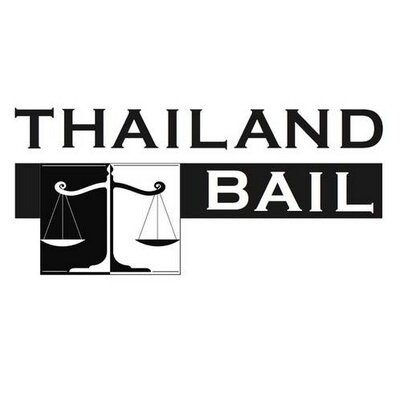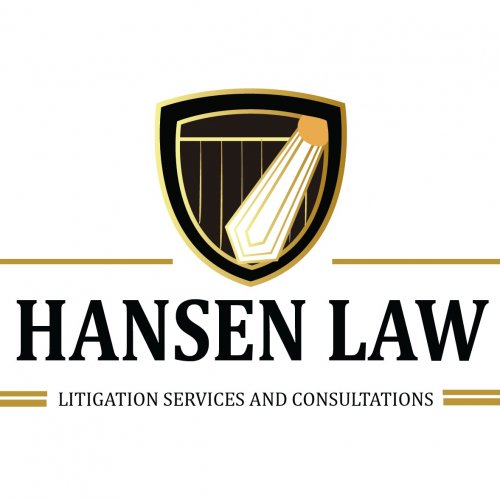Best Drug Crime Lawyers in Thailand
Share your needs with us, get contacted by law firms.
Free. Takes 2 min.
Or refine your search by selecting a city:
List of the best lawyers in Thailand
About Drug Crime Law in Thailand
Drug crime in Thailand is a significant legal issue, primarily due to the country's strict laws and severe penalties for related offenses. Thailand is known for its zero-tolerance stance on drug crimes, encompassing everything from possession and trafficking to production and distribution. The Thai legal system treats drug offenses seriously, with penalties ranging from hefty fines to long-term imprisonment, and in severe cases, the death penalty. This rigorous approach is part of Thailand's ongoing efforts to combat drug trafficking and its associated social issues.
Why You May Need a Lawyer
There are several common scenarios in which individuals might find themselves in need of legal assistance related to drug crimes in Thailand:
- Arrest for Possession: Even small amounts of illegal substances can lead to arrest under Thai law.
- Trafficking Charges: Being accused of trafficking, which carries harsher consequences, often requires expert legal defense.
- Detention of a Loved One: If a friend or family member is detained for a drug offense, understanding their rights and legal options is crucial.
- Extradition Issues: Foreign nationals facing drug charges might encounter complex extradition processes.
- Appeals: Navigating the appeals process after a conviction is intricate and demands legal support.
Local Laws Overview
Thailand’s Narcotic Act is the primary legal framework governing drug-related offenses. Key aspects include:
- Classification of Drugs: Drugs are classified into categories, with varying penalties depending on the class and quantity of drug involved.
- Possession and Use: Even minimal possession is illegal and can lead to severe penalties including imprisonment.
- Trafficking: Defined as the sale, transport, and distribution of drugs, and heavily penalized with potentially life imprisonment or death sentences for large-scale offenses.
- Rehabilitation Options: For minor offenses, there might be an option for rehabilitation or treatment alternatives instead of incarceration, under specific conditions.
Frequently Asked Questions
1. What substances are illegal in Thailand?
Thailand bans a wide range of substances, classified primarily under the Narcotic Act, including but not limited to marijuana, methamphetamine, heroin, and ecstasy.
2. Can foreigners face harsher penalties for drug crimes?
No, Thai law applies equally to both Thai nationals and foreigners, but foreigners may face additional complications such as deportation.
3. What should I do if I'm arrested for a drug-related offense?
Remain calm, request legal representation, and refrain from making any statements without a lawyer present.
4. Are there rehabilitation programs for drug offenders in Thailand?
Yes, some offenders qualify for government-sponsored rehabilitation programs, depending on the offenses' severity and the individual's circumstances.
5. How do Thai jails differ from those in my home country?
Thai jails may have stricter conditions and different living standards compared to jails in Western countries.
6. Can drug convictions be expunged from records in Thailand?
Generally, expungement is not a common practice in Thailand, and criminal records related to drug offenses could have long-lasting implications.
7. What legal defenses are available for drug charges?
Defenses may include wrongful arrest, procedural errors, or involuntary possession, but these require expert legal support to be effectively argued.
8. Are plea bargains possible in Thailand?
While not as formal as in other countries, negotiating charges or penalties may sometimes be possible depending on the specifics of the case.
9. How long does the legal process take for drug offenses?
The duration can vary widely based on the complexity of the case, ranging from a few months to several years for appeals and serious charges.
10. Can diplomatic channels be used to assist detained foreigners?
Foreign nationals can seek assistance from their embassy or consulate, which might provide support but cannot intervene in legal proceedings directly.
Additional Resources
Consider reaching out to the following organizations and bodies for more assistance and information:
- The Royal Thai Police: for initial reports and procedural inquiries.
- The Narcotics Control Board: oversees drug regulation and provides community resources.
- Thailand's Ministry of Justice: for broader legal system engagement and information.
- Non-governmental organizations: that offer legal aid and counseling services tailored to drug-related cases.
Next Steps
If you or someone you know needs legal assistance in a drug crime case in Thailand, follow these steps:
- Seek Immediate Legal Counsel: Contact a lawyer experienced in Thai drug laws as soon as possible.
- Consult Your Embassy: If you are a foreigner, notify your country’s embassy or consulate for guidance and consular assistance.
- Gather Documentation: Compile relevant documents, notes, and evidence that may pertain to your case.
- Stay Informed: Keep yourself updated on local laws and any changes that might affect your situation.
- Consider Counseling or Support Groups: Obtain support from local organizations that can offer advice or emotional assistance during legal proceedings.
Lawzana helps you find the best lawyers and law firms in Thailand through a curated and pre-screened list of qualified legal professionals. Our platform offers rankings and detailed profiles of attorneys and law firms, allowing you to compare based on practice areas, including Drug Crime, experience, and client feedback.
Each profile includes a description of the firm's areas of practice, client reviews, team members and partners, year of establishment, spoken languages, office locations, contact information, social media presence, and any published articles or resources. Most firms on our platform speak English and are experienced in both local and international legal matters.
Get a quote from top-rated law firms in Thailand — quickly, securely, and without unnecessary hassle.
Disclaimer:
The information provided on this page is for general informational purposes only and does not constitute legal advice. While we strive to ensure the accuracy and relevance of the content, legal information may change over time, and interpretations of the law can vary. You should always consult with a qualified legal professional for advice specific to your situation.
We disclaim all liability for actions taken or not taken based on the content of this page. If you believe any information is incorrect or outdated, please contact us, and we will review and update it where appropriate.
Browse drug crime law firms by city in Thailand
Refine your search by selecting a city.















